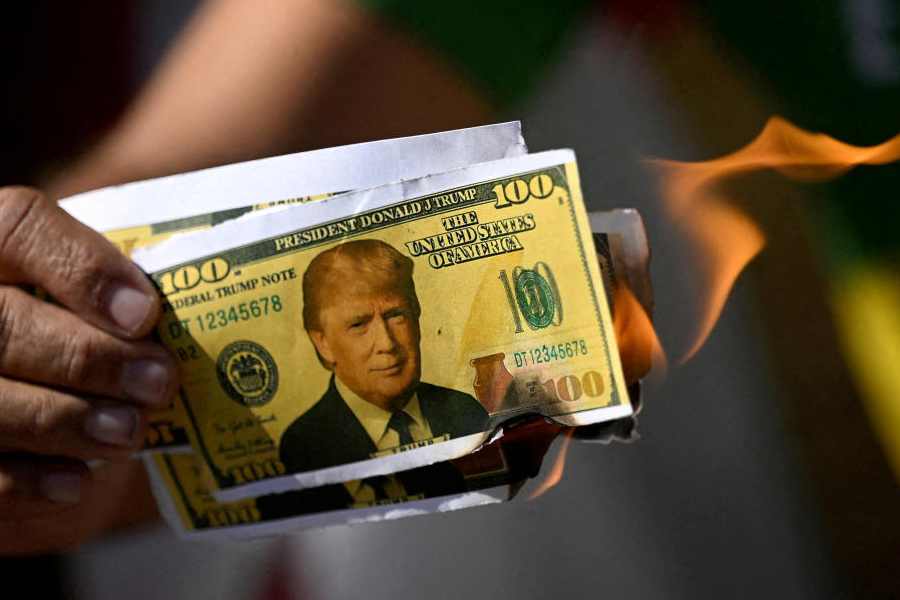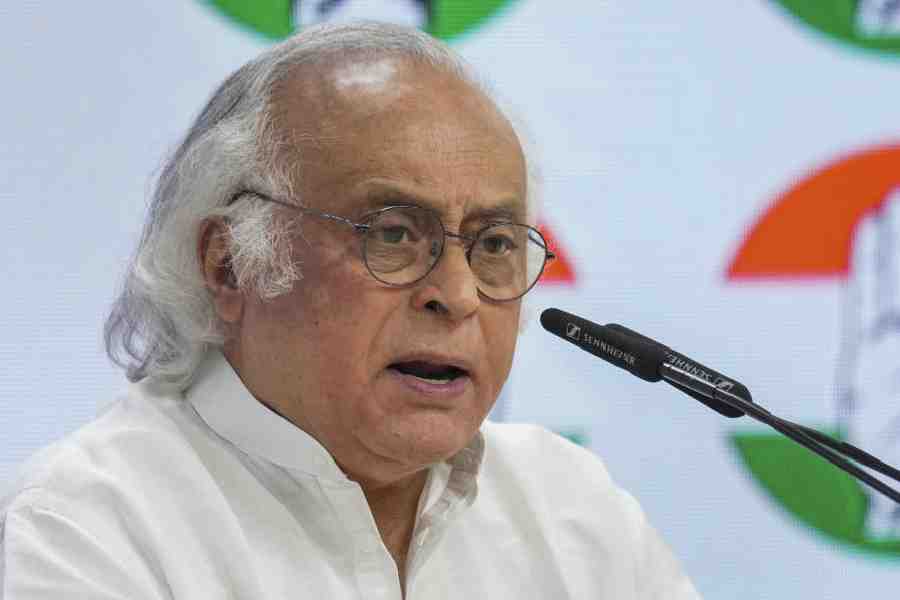President Donald Trump’s extensive tariffs have already started to generate a significant amount of money for the federal government, a new source of revenue for a heavily indebted nation that American policymakers may start to rely on.
As part of his quest to reorder the global trading system, Trump has imposed steep tariffs on America’s trading partners, with the bulk of those set to go into effect on August 7. Even before the latest tariffs kick in, revenue from taxes collected on imported goods has grown dramatically so far this year. Customs duties, along with some excise taxes, generated $152 billion through July, roughly double the $78 billion netted over the same time period last fiscal year, according to Treasury data.
Indeed, Trump has routinely cited the tariff revenue as evidence that his trade approach, which has sowed uncertainty and begun to increase prices for consumers, is a win for the US. Members of his administration have argued that the money from the tariffs would help plug the hole created by the broad tax cuts Congress passed last month, which are expected to cost the government at least $3.4 trillion.
“The good news is that Tariffs are bringing Billions of Dollars into the USA!” Trump said on social media shortly after a weak jobs report showed signs of strain in the labour market.
Over time, analysts expect that the tariffs, if left in place, could be worth more than $2 trillion in additional revenue over the next decade. Economists overwhelmingly hope that doesn’t happen and the US abandons the new trade barriers. But some acknowledge that such a substantial stream of revenue could end up being hard to quit.
“I think this is addictive,” said Joao Gomes, an economist at the University of Pennsylvania’s Wharton School. “I think a source of revenue is very hard to turn away from when the debt and deficit are what they are.”
Trump has long fantasised about replacing taxes on income with tariffs. He often refers fondly to American fiscal policy in the late 19th century, when there was no income tax and the government relied on tariffs, citing that as a model for the future. And while income and payroll taxes remain by far the most important sources of government revenue, the combination of Trump’s tariffs and the latest Republican tax cut does, on the margin, move
the US away from taxing earnings and toward taxing goods.
Such a shift is expected to be regressive, meaning that rich Americans will fare better than poorer Americans under the change. That’s because cutting taxes on income does, in general, provide the biggest benefit to richer Americans who earn the most
income. The recent Republican cut to income taxes and the social safety net is perhaps the most regressive piece of major legislation in decades.
Placing new taxes on imported products, however, is expected to raise the cost of everyday goods. Lower-income Americans spend more of their earnings on those more expensive goods, meaning the tariffs amount to larger tax increase for them compared to richer Americans.
Tariffs have begun to bleed into consumer prices, with many companies saying they will have to start raising prices as a result of added costs. And analysts expect the tariffs to weigh on the performance of the economy overall, which in turn could reduce the amount of traditional income tax revenue the government collects every year.
“Is there a better way to raise that amount of revenue? The economic answer is: Yes, there is a better way, there are more efficient ways,” said Ernie Tedeschi, director of economics at the Yale Budget Lab and a former Biden administration official. “But it’s really a political question.”
Tedeschi said that future leaders in Washington, whether Republican or Democrat, may be hesitant to roll back the tariffs if that would mean a further addition to the federal debt load, which is already raising alarms on Wall Street. And replacing the tariff
revenue with another type of tax increase would require Congress to act, while the
tariffs would be a legacy decision made by a previous
President.
“Congress may not be excited about taking such a politically risky vote when they didn’t have to vote on tariffs in the first place,” Tedeschi said.
(New York Times News Service)











